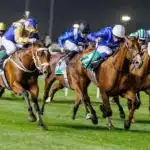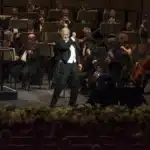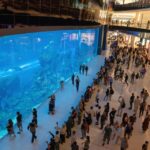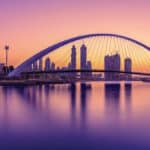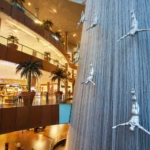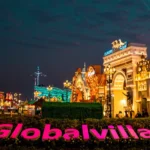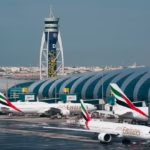
Ramadan in Dubai
Introduction
Ramadan in Dubai is a religious event in which all Muslims participate, that commemorates the prophet Muhammad’s first revelation. The event lasts a lunar month which is 28 days long, and the dates change each year as it follows the Islamic calendar.
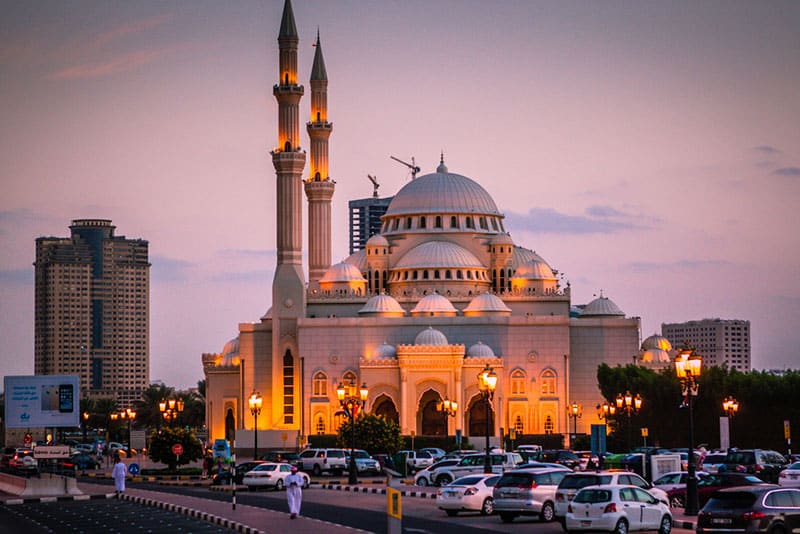
As one of the most significant observances in Islam, Ramadan sees Muslims across Dubai and the region fasting from dawn until dusk, while focusing on spiritual reflection, acts of charity, and strengthening community ties.
Table Of Contents
Experiencing Ramadan in Dubai is a unique blend of spiritual rejuvenation, cultural immersion, and communal harmony. This article explores the vibrant tapestry of practices, traditions, and activities that make Ramadan in Dubai a time of reflection, connection, and celebration for both residents and visitors.
Understanding Ramadan in Dubai
Ramadan, the ninth month of the Islamic lunar calendar, is observed by Muslims worldwide as a month of fasting, prayer, and reflection. It commemorates the month in which the Quran was first revealed to the Prophet Muhammad. In Dubai, a city where tradition and modernity blend seamlessly, Ramadan holds a special significance, embodying the city’s rich Islamic heritage and cosmopolitan ethos.
The Spirit of Ramadan
The essence of Ramadan in Dubai is not just in abstaining from food and drink from dawn to sunset but in purifying the soul, practising self-discipline, and focusing on charitable deeds. The city comes alive with a sense of community and spiritual solidarity, with mosques echoing the call to prayer and people gathering for communal prayers and Iftar, the meal to break the fast.

The Experience of Ramadan in Dubai
During Ramadan, daily life in Dubai takes on a distinct rhythm and character. Streets and malls are quieter during the daylight hours as Muslims abstain from eating, drinking, and smoking. However, in the evening after the iftar meal that breaks the daily fast, the city comes alive with night markets, events, and crowds of locals and visitors alike enjoying the vibrant atmosphere.
Iftar and Suhoor: A Culinary Journey
Dubai offers a plethora of dining options for Iftar and Suhoor, ranging from lavish buffets in five-star hotels to traditional tents and family-run eateries. These meals are not just about indulgence but also about coming together, sharing, and giving. Traditional Emirati dishes, along with a variety of international cuisines, highlight the inclusive spirit of Ramadan in Dubai.
Cultural Experiences and Nightlife
Ramadan in Dubai is a time of vibrant cultural expression. The city hosts numerous events, exhibitions, and workshops that explore Islamic art, culture, and history. Night markets, Ramadan tents, and shopping festivals offer a unique nocturnal experience, with extended shopping hours and special discounts. These lively souks offer a festive shopping experience for foods, crafts, clothes, and more alongside games and entertainment for all ages until the wee hours.
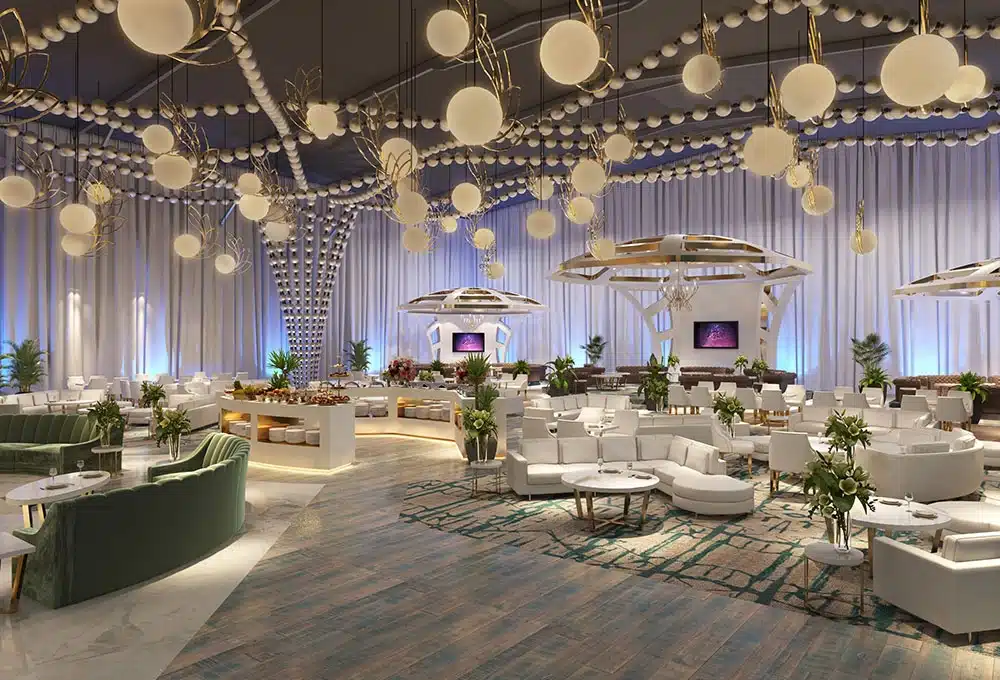
Traditional Ramadan Tents
One of the most iconic Ramadan traditions in Dubai is the setting up of majlises or Ramadan tents. These lavishly decorated temporary structures hosted by hotels, malls, and communities provide stunning venues for iftar meals and socializing after sunset. Boasting Arabian decor, these tents recreate the hospitality and ambience of generations past.
Charity and Community Service
Charity, known as Zakat, is one of the Five Pillars of Islam and is especially emphasized during Ramadan. Dubai witnesses an outpouring of generosity and community service, with various initiatives aimed at helping the less fortunate. From donation drives to community iftars, the spirit of giving pervades the city.
Eid Al-Fitr
The Eid al-Fitr holiday, also known as the “Festival of Breaking the Fast,” is a significant celebration in Dubai and the Islamic world, marking the end of the holy month of Ramadan.
Eid al-Fitr is celebrated on the first day of Shawwal, the tenth month of the Islamic calendar. In Dubai, the festivities begin with the sighting of the new moon, which is traditionally announced by religious authorities.

On the morning of Eid, Muslims gather in grand mosques and open spaces across Dubai to perform the Eid prayer. The largest congregations take place at the iconic Jumeirah Mosque and the Grand Mosque in Bur Dubai.
After the prayers, families and friends gather to exchange greetings, and gifts, and share in the joy of Eid. Traditional delicacies like dates, sweets, and dishes like luqaimat (fried dumplings) are savoured during these reunions.
Dubai’s malls and public spaces come alive with vibrant decorations, exhibitions, and activities during Eid. Eid fairs, featuring amusement rides, games, and traditional handicrafts, are set up across the city, providing entertainment for all ages.
One of the highlights of Eid in Dubai is the spectacular fireworks displays and light shows that illuminate the city’s skyline. The Burj Khalifa, the world’s tallest building, hosts an awe-inspiring light and sound show, attracting thousands of spectators.
Eid al-Fitr is also a popular time for shopping in Dubai, with malls offering significant discounts and promotions. Residents and visitors alike take advantage of the sales to buy gifts, clothes, and household items.
Various cultural events and activities are organized during Eid, showcasing traditional dances, music, and art forms from the region. These events provide an opportunity for locals and visitors to immerse themselves in the rich heritage of the UAE and the Islamic world.
Eid al-Fitr in Dubai is a time of joy, celebration, and community spirit. The city embraces the festive atmosphere with enthusiasm, creating lasting memories for residents and visitors alike.
Things to Watch Out For
Ramadan is a holy time for Muslims and there is less tolerance for bad behaviour. In recent years the restrictions around eating in public have been reduced. You will find that restaurants, cafes etc are no longer blocked from public view and are open as normal.
However eating in public on the street is still an issue, as well as public displays of affection, wearing revealing clothes and more. Dubai does not tolerate any kind of verbal abuse even outside of Ramadan and the authorities will likely be harsher during the holy month.
The main point is to respect their culture and act accordingly.
Even if you are not a Muslim, it is an amazing time of year and I would encourage you to take part in as many activities as possible to embrace the culture in Dubai.
Video
Conclusion
Whether an observer or visitor, the Holy Month of Ramadan leaves an indelible impression on all who experience it in the dynamic city of Dubai. It is a time for spiritual rejuvenation, indulgent traditions, and communities coming together, adding profound warmth and richness to the Emirates’ already dazzling cosmopolitan fabric.
FAQ
Q: What is Ramadan?
A: Ramadan is the ninth month of the Islamic lunar calendar, during which Muslims around the world fast from dawn to sunset.
Q: When does Ramadan start and end?
A: The start and end of Ramadan are determined by the sighting of the moon, so the dates vary each year. It lasts for 29 or 30 days, depending on the lunar calendar.
Q: How is Ramadan observed in Dubai?
A: In Dubai, Ramadan is observed with fasting from sunrise to sunset, increased prayer and worship, and a focus on charitable acts and community gatherings.
Q: Are there any specific rules or customs to follow during Ramadan in Dubai?
A: Yes, during Ramadan in Dubai, it is important to respect the local customs and traditions. Eating, drinking, and smoking in public places during fasting hours is not allowed, and it is important to dress modestly.
Q: What is Iftar?
A: Iftar is the evening meal with which Muslims end their daily Ramadan fast at sunset.
Q: Where can Iftar meals be enjoyed in Dubai?
A: Dubai offers a wide range of options for Iftar, including traditional Arab restaurants, luxurious hotel buffets, and special Ramadan tents that offer a variety of cuisines.
Q: What is Suhoor?
A: Suhoor is the pre-dawn meal eaten before the start of the fasting day during Ramadan.
Q: Are there any special events or activities in Dubai during Ramadan?
A: Yes, Dubai hosts a variety of cultural, religious, and entertainment events during Ramadan, including Ramadan markets, art exhibitions, and charity events.
Q: How is Eid Al-Fitr celebrated in Dubai?
A: Eid Al-Fitr, which marks the end of Ramadan, is celebrated in Dubai with prayers at mosques, festive meals with family and friends, and giving of gifts and charity.
Q: Are there any specific greetings or customs for Eid Al-Fitr in Dubai?
A: Yes, it is customary to greet people with “Eid Mubarak” (Blessed Eid) during Eid Al-Fitr in Dubai. It is also common to exchange gifts and visit family and friends during this time.
Tips for Visitors
- Respect Local Customs: While non-Muslims are not expected to fast, it’s important to show respect by refraining from eating, drinking, or smoking in public during fasting hours.
- Dress Modestly: Opt for conservative clothing that covers the shoulders and knees, especially when visiting mosques.
- Experience Iftar: Even if you’re not fasting, partaking in an Iftar meal can be a deeply enriching experience.
- Explore Cultural Events: Take advantage of the numerous cultural activities and events that take place during the month.
Useful Links
- For a different view take a look at this article about Ramadan.
- If you want to come to Dubai to experience Ramadan then take a look at the entry requirements.
- Your first experience of Dubai when you arrive will be the airports.
- If you are interested in the culture and history of Dubai then check out the creek.
- Like the art scene? Check out Al Quoz in the heart of Dubai.
Key Takeaways
- Spiritual Rejuvenation: Ramadan in Dubai offers a unique opportunity for both Muslims and non-Muslims to experience spiritual growth.
- Cultural Immersion: The city’s diverse Iftar and Suhoor options, along with cultural events, provide a deep dive into Islamic traditions.
- Communal Harmony: Ramadan embodies the spirit of community, generosity, and shared experiences in Dubai.
- Respect for Traditions: Visitors are welcome to partake in the observance of Ramadan while respecting local customs and practices.
Ramadan in Dubai is a testament to the city’s ability to uphold its cultural roots while embracing a global community. It offers a unique experience that transcends religious boundaries, inviting all to reflect, connect, and celebrate the holy month in unity and peace.

